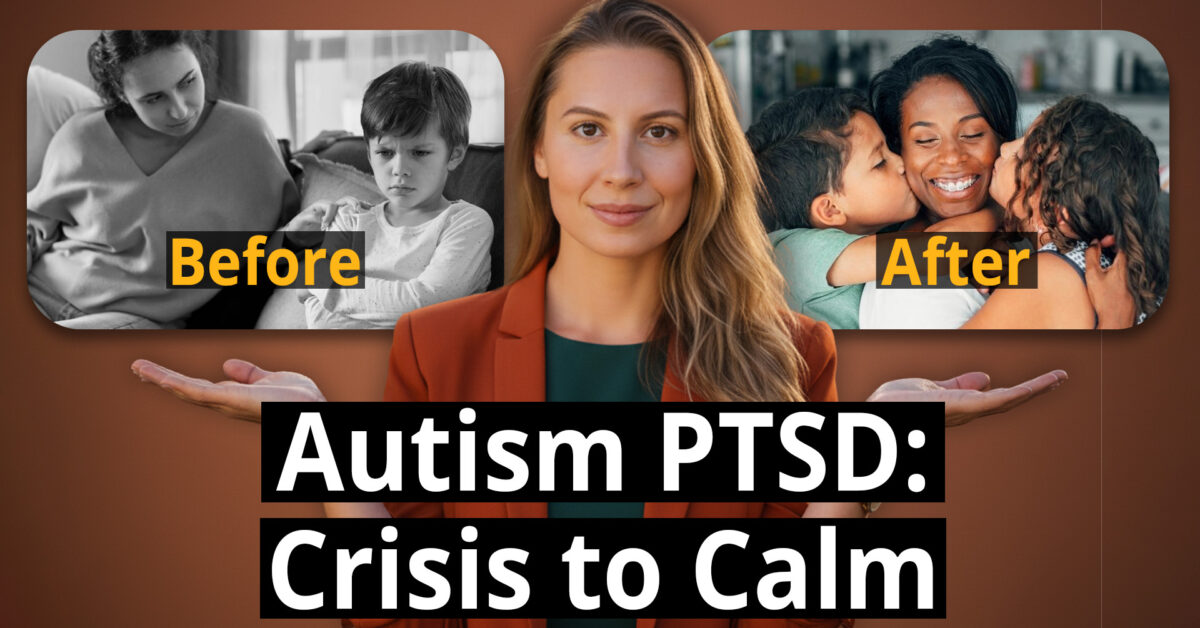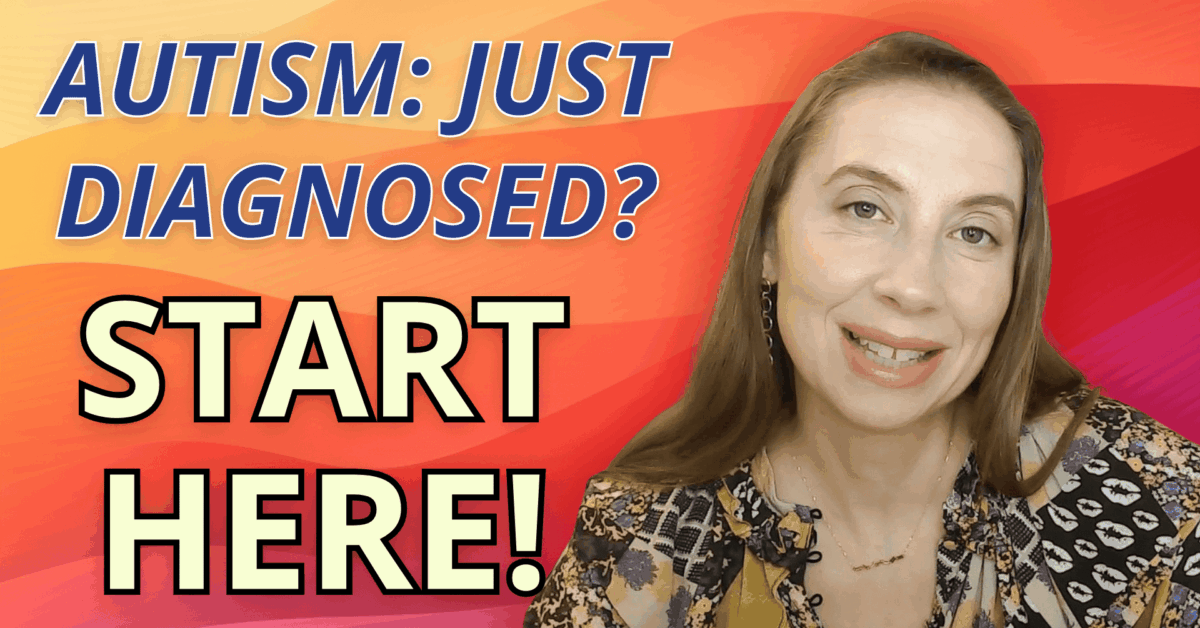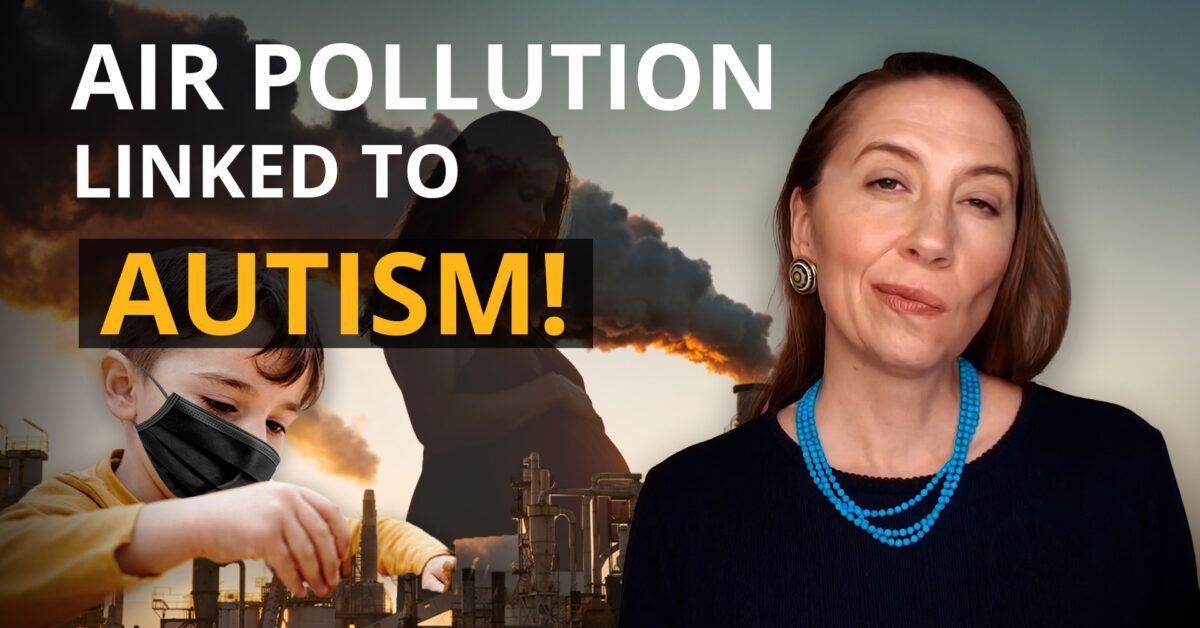Have you ever felt deeply shaken by something your child did?
Maybe aggression or self-harm or a terrifying moment where you truly feared for their safety or even your own safety? For some parents raising teens with autism and emotional dysregulation, those moments don’t just fade away.
They can leave lasting emotional scars. What researchers are now calling child-related PTSD is post-traumatic stress disorder. But here’s the good news.
A new study shows that a well-known therapy may help parents heal and even help their teens, too.
Understanding PTSD Beyond the Usual Picture
When we think of PTSD, most of us picture war veterans or survivors of natural disasters. But this new research, published in the European Journal of Psychotraumatology in 2025, looked at parents, not soldiers. These parents had teenagers with autism and severe emotional dysregulation.
That means their kids often struggled with extreme mood swings, aggression, or self-injury. And in some cases, even suicide attempts. This study is one of the first to directly address trauma in parents of autistic teens.
It flips the whole idea that autism support is only about the child. Family-centered care, where both the parent and the child get emotional support, may actually unlock better outcomes for everyone. If you know anything about autism-challenging behaviors, “challenging behaviors,” they’re more than just challenging, but you know, understandable, that these parents lived in a constant state of fear, waiting for the next crisis call, the next emergency room visit, the next hand through a wall, the next head through some glass.
The Hidden Toll on Parents
These challenging behaviors are really devastating and stressful. Over time, these parents’ nervous systems stayed on high alert, right? You had to be alert and ready for anything that might happen at any time.
So these parents, they were on high alert for so long that they developed flashbacks, anxiety, and sleep problems. These are all signs of post-traumatic stress. Yet mental health systems rarely treat or even address parents’ trauma.
And that’s a huge gap, because when a parent is emotionally exhausted and dysregulated, it can make it harder to support a child who is struggling with their own emotions.
What Is EMDR Therapy?
Researchers in the Netherlands wanted to see if EMDR, eye movement desensitization and reprocessing, could help. If you haven’t heard of EMDR, it’s a structured therapy that helps people reprocess traumatic memories.
So they can think about painful events without reliving them. So it takes the emotion out of it. It’s one of the most effective evidence-based treatments for PTSD.
In this study, it was small. There were seven parents, five moms, two dads, and each had a teen with autism and severe emotional dysregulation. All of them met the clinical criteria for PTSD because of traumatic events involving their child with autism.
So again, things like self-harm, suicide attempts, violent outbursts. Each parent received three to five sessions of EMDR therapy. One session per week, and it was about 90 minutes each session.
So not hugely time-intensive. And the results? Absolutely remarkable.
Remarkable Results of EMDR
After EMDR therapy, none of the parents met the criteria for PTSD. Let me repeat that. None.
They all reported significantly less stress, fewer flashbacks, better sleep, fantastic, and more emotional calm. Many even shared heartwarming changes in daily life. Being able to walk the dog without checking the phone every single minute.
Sleeping without needing medication. Hugging their teen again without fear. And rebuilding trust in mental health professionals.
The Ripple Effect: Healing Beyond the Parent
But this is important. The ripple effect didn’t stop there. Five out of the seven parents said their teen’s emotional dysregulation also improved after the parents’ EMDR sessions.
And for some of these parents, those changes in their teens lasted four months. That’s huge! It suggests that when parents heal their own trauma, it doesn’t just help them; it can help their child, too.
This study highlights something many families know in their hearts. When a parent feels calm and emotionally regulated, it changes the entire energy of the house. Parents become better co-regulators.
Able to stay grounded when their child is melting down. And that is very hard to do. And while EMDR isn’t the only approach to trauma recovery, this research shows it can be a powerful, non-time-intensive limited tool.
Even just a few sessions made a life-changing difference. If you ever found yourself thinking, Why can’t I calm down even when things are okay? Or, I feel like I’m walking on eggshells all the time.
You’re not broken. And you’re not alone. These are signs that your nervous system may be carrying trauma from everything that you’ve been through with your child.
A Message to Parents: Your Healing Matters Too
Now we know you love your child. This is not about whether you’re doing a good job as a parent or not. Challenging behaviors are challenging.
But we love our kids. This research shows that talking to a trauma-informed therapist, especially one trained in EMDR or trauma-focused CBT, which is another trauma therapy, could be your first step towards finding calm again. When parents heal, they show their children what resilience truly looks like.
Parenting a child with autism can be one of the hardest and most beautiful things there is. And studies like this remind us that supporting parents isn’t just nice to do, it’s essential. Because a regulated parent helps raise a more regulated child.
If you’re a parent who’s lived through frightening or overwhelming moments, your trauma matters. You deserve healing, too. Therapies like EMDR can be completed in just a few sessions and have strong evidence for trauma recovery.
And it matters. When parents feel safe and regulated, they can show up with more patience, consistency, connection, and all that calm presence just ripples through the entire family system.
Confused by all the information about autism? I’ve got you. Click the link to see how we can work together. Let me break down the science and provide you with clear, actionable steps to make your path forward easier.




